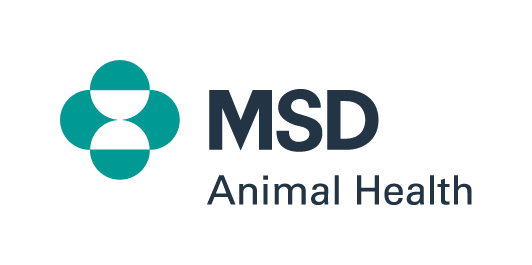External Parasites Negatively Impact Cattle Health, Performance and Production, Highlighting the Need for Year-Round Parasite Management and Control
Data Presented at the World Buiatrics Congress 2024
RAHWAY, N.J., May 21, 2024 – MSD Animal Health, a division of Merck & Co., Inc., Rahway, N.J., USA (NYSE:MRK), today announced findings on the global economic impact of parasites in cattle, concluding that parasite management is critical for farmers to produce enough beef to meet world food demands. These findings were presented at the World Buiatrics Congress (WBC) 2024, May 20-24, in Cancun, Mexico and were originally published in Animals.1
“Economic losses due to parasites and related challenges threaten the sustainability of beef production. For the beef industry to meet an expected 14% growth in global meat consumption by 2030, major improvements will be needed in parasite management,” said Tom Strydom, MSD Animal Health global director for parasite management for ruminants. “Furthermore, there is evidence that cattle infected with certain parasites contribute to greater greenhouse gas emissions than non-infected animals.1 Parasite control could help cattle farmers to reduce their carbon footprints.” 1
Internal and external parasites have an enormous impact on cattle health and performance. As a result, farmers in the world’s major cattle producing regions suffer losses exceeding US$21 billion per year.1 Major cattle parasites of concern globally include gastrointestinal parasites (GIN), liver flukes, ticks and lice. Ticks alone affect 80% of the world’s cattle, causing a diverse array of tick-borne diseases and affecting overall animal health and well-being. 1
Additionally, geographical differences in production environment, management practices, climate, cattle age and other variances necessitate parasite control methods that are tailored for each farm.
Science-based solutions
One obstacle to controlling parasites is that management is too often based on tradition rather than science.
“In many areas of the world, farmers follow parasite control practices they learned from their fathers or from fellow farmers. Very few farmers consult with their veterinarians or other scientists on best practices,” Strydom said. “The lack of awareness and adoption of available science-based solutions contributes to high production losses due to parasites.”
Compounding the problem is the development of parasiticide resistance in many regions, making it more difficult for farmers to keep parasites in check. Climate change has created favorable conditions for many parasites to thrive and expand into new geographic areas.1
Appropriate use of anthelmintics, endectocides and acaricides have widely been shown to result in net positive return on investment. Implementing strategic parasite control measures, with thorough knowledge of parasite risk, prevalence, parasiticide resistance profiles and prices can result in positive economic returns for beef cattle farmers in all sectors.
Farmers should consult with their local veterinarian for advice on products and practices that will help them manage parasites more effectively.
About MSD Animal Health
At MSD, known as Merck & Co., Inc., Rahway, N.J., USA in the United States and Canada, we are unified around our purpose: We use the power of leading-edge science to save and improve lives around the world. For more than a century, we’ve been at the forefront of research, bringing forward medicines, vaccines and innovative health solutions for the world’s most challenging diseases. MSD Animal Health, a division of Merck & Co., Inc., Rahway, N.J., USA, is the global animal health business of MSD. Through its commitment to The Science of Healthier Animals®, MSD Animal Health offers veterinarians, farmers, producers, pet owners and governments one of the widest ranges of veterinary pharmaceuticals, vaccines and health management solutions and services as well as an extensive suite of connected technology that includes identification, traceability and monitoring products. MSD Animal Health is dedicated to preserving and improving the health, well-being and performance of animals and the people who care for them. It invests extensively in dynamic and comprehensive R&D resources and a modern, global supply chain. MSD Animal Health is present in more than 50 countries, while its products are available in some 150 markets. For more information, visit www.msd-animal-health.com and connect with us on LinkedIn and X (formerly Twitter).
Forward-Looking Statement of Merck & Co., Inc., Rahway, N.J., USA
This news release of Merck & Co., Inc., Rahway, N.J., USA (the “company”) includes “forward-looking statements” within the meaning of the safe harbor provisions of the U.S. Private Securities Litigation Reform Act of 1995. These statements are based upon the current beliefs and expectations of the company’s management and are subject to significant risks and uncertainties. If underlying assumptions prove inaccurate or risks or uncertainties materialize, actual results may differ materially from those set forth in the forward-looking statements.
Risks and uncertainties include but are not limited to, general industry conditions and competition; general economic factors, including interest rate and currency exchange rate fluctuations; the impact of pharmaceutical industry regulation and health care legislation in the United States and internationally; global trends toward health care cost containment; technological advances, new products and patents attained by competitors; challenges inherent in new product development, including obtaining regulatory approval; the company’s ability to accurately predict future market conditions; manufacturing difficulties or delays; financial instability of international economies and sovereign risk; dependence on the effectiveness of the company’s patents and other protections for innovative products; and the exposure to litigation, including patent litigation, and/or regulatory actions.
The company undertakes no obligation to publicly update any forward-looking statement, whether as a result of new information, future events or otherwise. Additional factors that could cause results to differ materially from those described in the forward-looking statements can be found in the company’s Annual Report on Form 10-K for the year ended December 31, 2023 and the company’s other filings with the Securities and Exchange Commission (SEC) available at the SEC’s Internet site (www.sec.gov).
- Strydom, T.; Lavan, R.P.; Torres, S.; Heaney, K. The Economic Impact of Parasitism from Nematodes, Trematodes and Ticks on Beef Cattle Production. Animals 2023, 13, 1599. https://doi.org/10.3390/ani13101599
